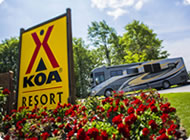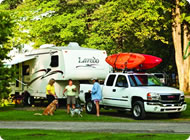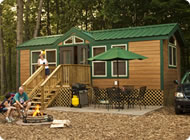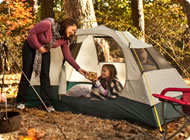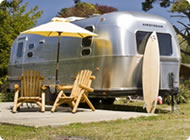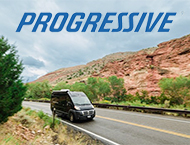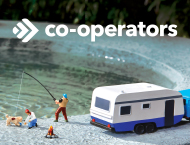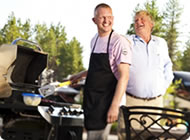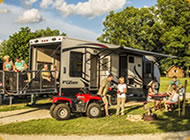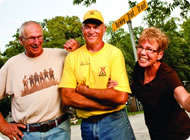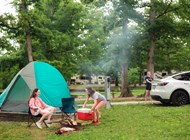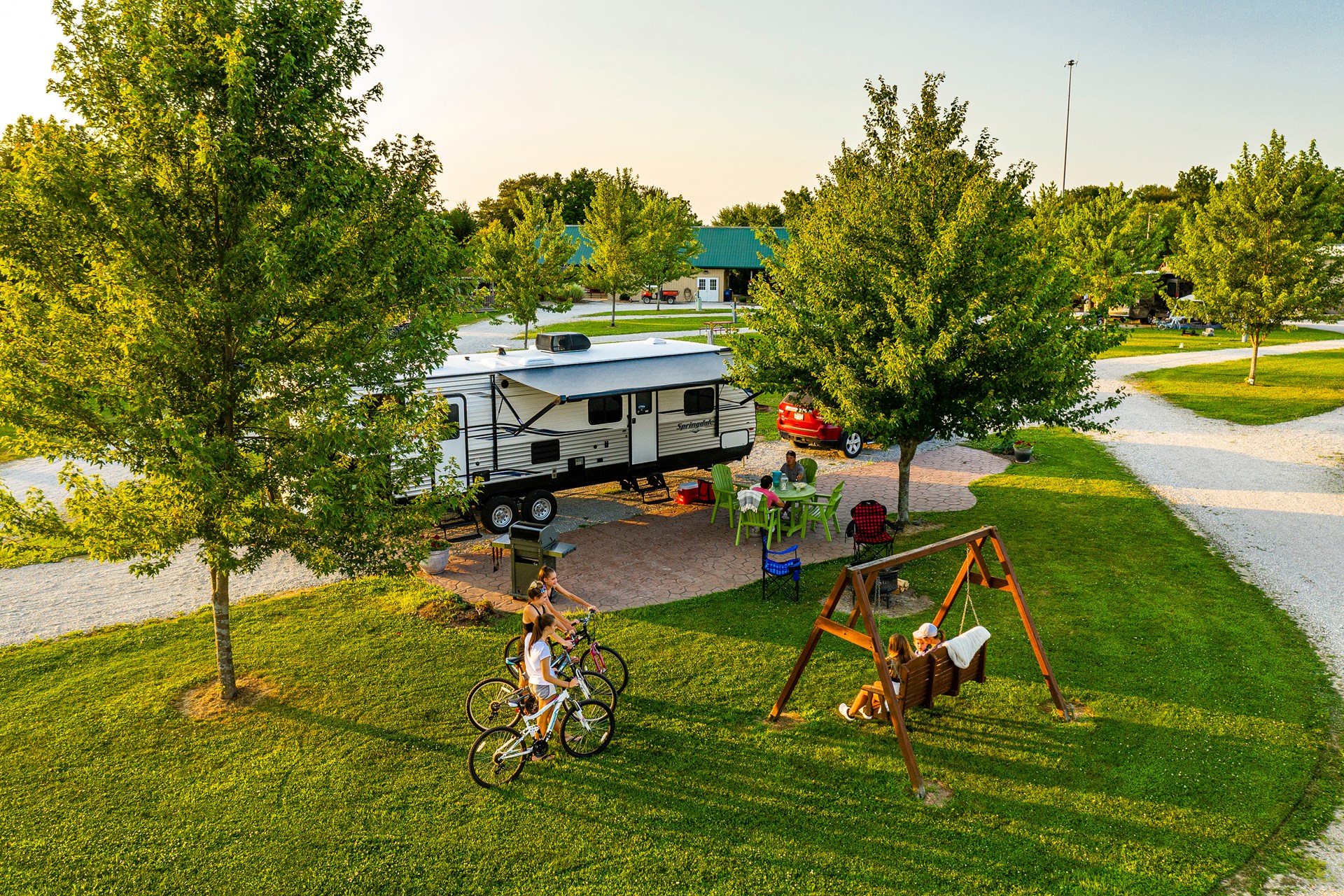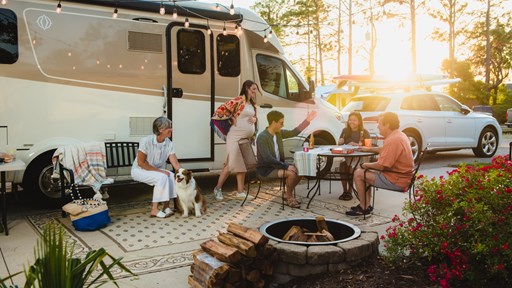Ever relaxed on a lazy morning in the shade of your RV and thought “I could do this all the time?” Well, some people do!
If you could call your RV “home”, would you? After all, an RV has just about everything one needs for comfortable daily life: a kitchen, a bed, a bath, and a TV … with the added bonus of wheels to take you anywhere, any time.
The thought of living in an RV is instantly alluring to some and repulsive to others. Who chooses this type of life, and why?
First, what RV life is not. Living in an RV is not the same as living in a tiny house (it’s more mobile than that), and it’s not quite living in a van, either (the RV is usually more spacious and has running water).
Another common misconception about full-time RV living is who is likely to take up their travel camper as a permanent residence. Spoiler alert — RV living is not just for free-spirited twenty-somethings or snowbird retirees. Entire families, with their kids, have decided to pack up, travel, and live — with all the comforts of home in their mobile home.
For some, the choice is simple: life on the road in an RV is a nonstop adventure with fringe benefits like more leisure time with loved ones, a simpler life, and financial flexibility. It’s no wonder the idea appeals to so many, particularly as modern life gets crazier and new model RVs get cozier.
Ever wondered what’s so magical about living full-time in an RV? Here are six reasons from people who’ve taken the plunge and happily call their RV “home”.
Considering Full-Time RV Living? Here’s Why it Might be for You
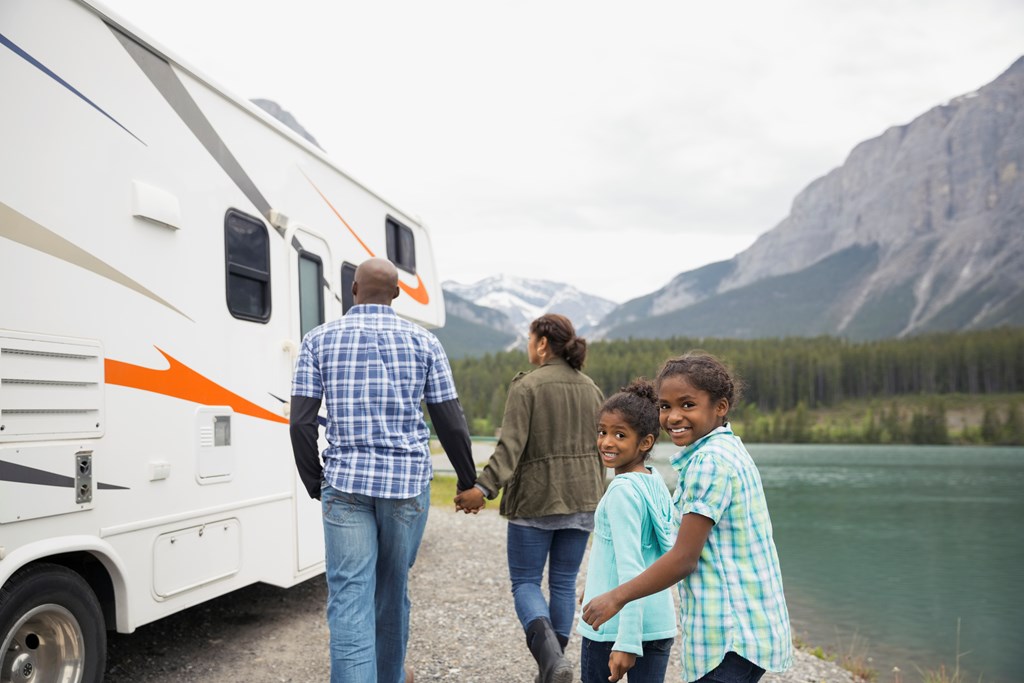
1. An opportunity to live simply
The average person lives with a lot of stuff — this is particularly true for homeowners. The longer you live in a place the easier it is for things to creep in. Soon, time and money are spent not only on acquiring those things but on maintaining them as well. Some people will even say they feel as though their stuff “owns” them. If you want to purge your space and your mind of clutter, figuring out what you need and do not need to live in an RV is certainly one effective way to go about it.
Blogger and traveler Reagan Rose considers himself an “accidental minimalist” since embarking on full-time RV living with his wife and dog. After selling their house to buy an old Winnebago, Rose says the challenge of what to take and what to leave was real, and also very telling. And at the end of the day, he had a rather cathartic moment where he realized maybe he didn’t need all that much stuff, after all.
“Obviously there are conveniences we missed while living full-time in an RV,” Rose says. “We would have loved to have a washer-dryer, a desk, or some more counter space, but the point is we realized that even though we dwelt in a breadbox, we were living in comfort and convenience. We had far more than what [many people in the rest of the world have], and more than what we really needed.”
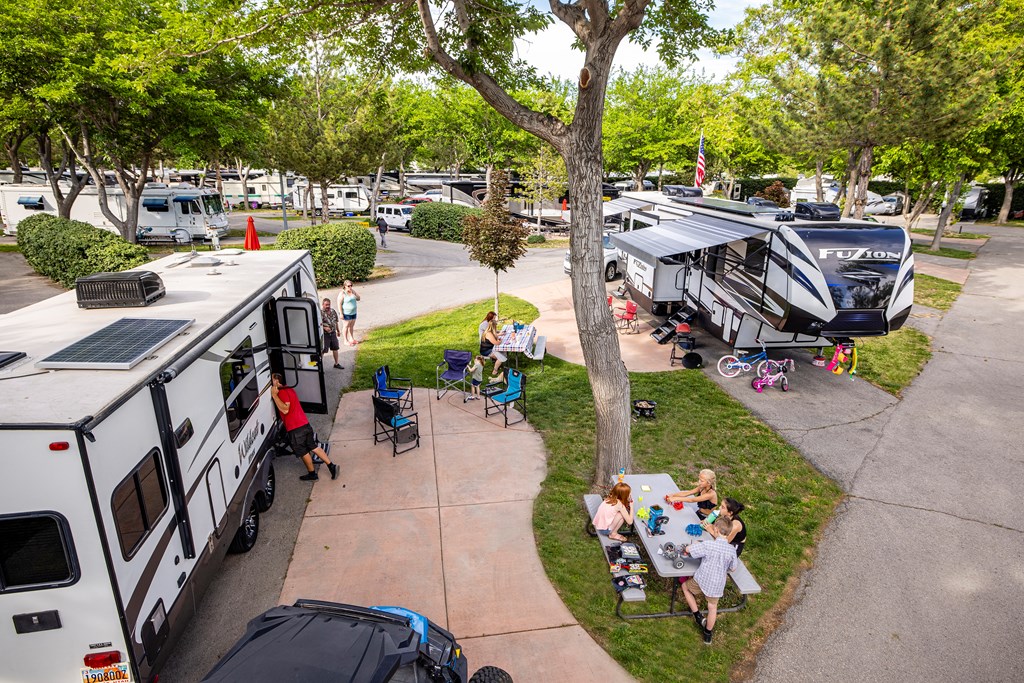
2. Enjoy new community along with your travels
While living in an RV you’re not stationed on the same street, with the same neighbors, year after year. The beauty of being on the road full-time is the ability to tap into nature’s peace and live an unhurried daily life. That said, the idea of finding community on the road can be especially challenging for families traveling with small kids. After all, making and keeping friends is no small matter to a child. The good news is, there are ways that families living this somewhat unorthodox life can find and connect with other full-time RV families and share the same challenges, joys, and values.
Bryanna, a mother of 6 (plus a dog) and the author of the blog Crazy Family Adventure, traveled full-time around North America for several years. On the road, she was pleasantly surprised to find there were a lot of families like hers out there, and she tapped into the group Fulltime Families as a way to connect with other like-minded travelers and full-time RV families, some of whom meet up regularly at designated sites on designated dates.
Experienced full-time RVers often find that community touch by attending rallies like those offered by Fulltime Families. Another advantage of traveling families is the ability to visit families and friends scattered throughout the country along the way! Beyond that, video chats, letters, and postcards are all great ways to stay in touch.
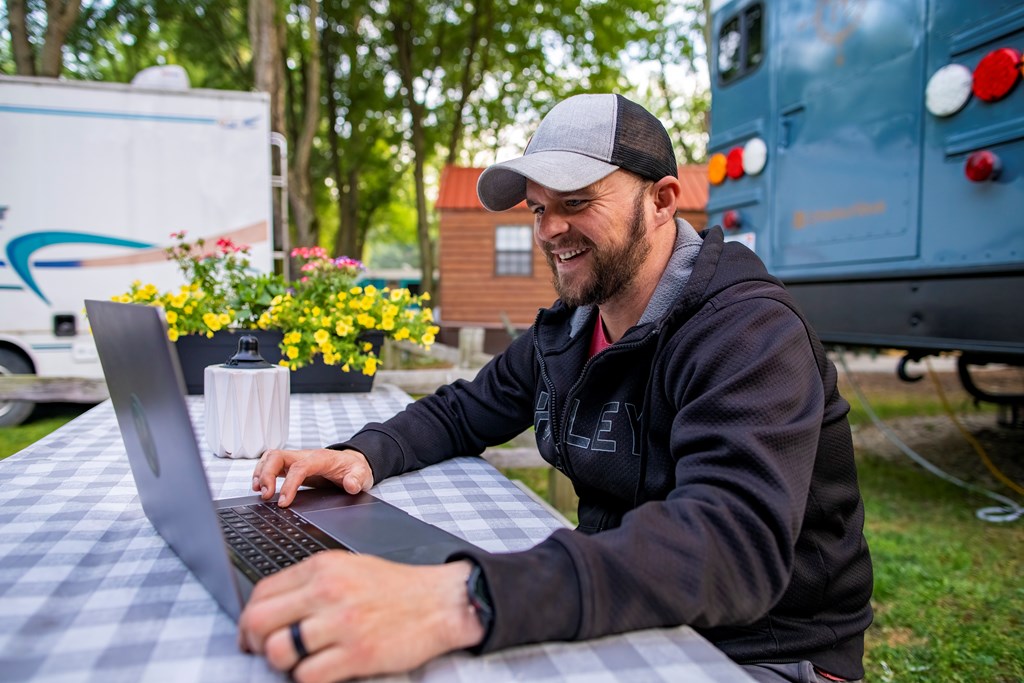
3. Work anywhere
The Coronavirus Pandemic completely changed the way many of us live and work. It’s no coincidence that more families took to the road in those early years of the pandemic. Remote work opportunities skyrocketed (sometimes by necessity) and countless professionals leaned into new and emerging technology.
Remote and virtual businesses allow workers to travel while employed. Of course, sometimes this means attending conference calls in the truck or at a local coffee shop, but it can be done. Other common occupations of full-time RVers are RV technicians, photographers, and resort-camp-park employees. Countless full-time RVers even make money by documenting their lives and experiences on the road in blogs and on social media.
Many travel nurses (an in-demand profession) decide to live in an RV because they can travel with ease, and even bring pets and family along for a sense of normalcy and moral support.
Jackie Musick, a labor and delivery travel nurse with TNAA (Travel Nurse Across America), tours the country with her husband Steve, their two children, and two large dogs. Formerly rooted in Ohio, the Musick family has lived in an RV for more than a year.
Musick’s travel nurse assignments have taken her to Texas, Washington, and Maryland (to name a few locations). She says travel nursing has helped her fall in love with her career again and has helped her avoid burnout … and the techniques she’s learned at different facilities have also helped her become a better nurse.
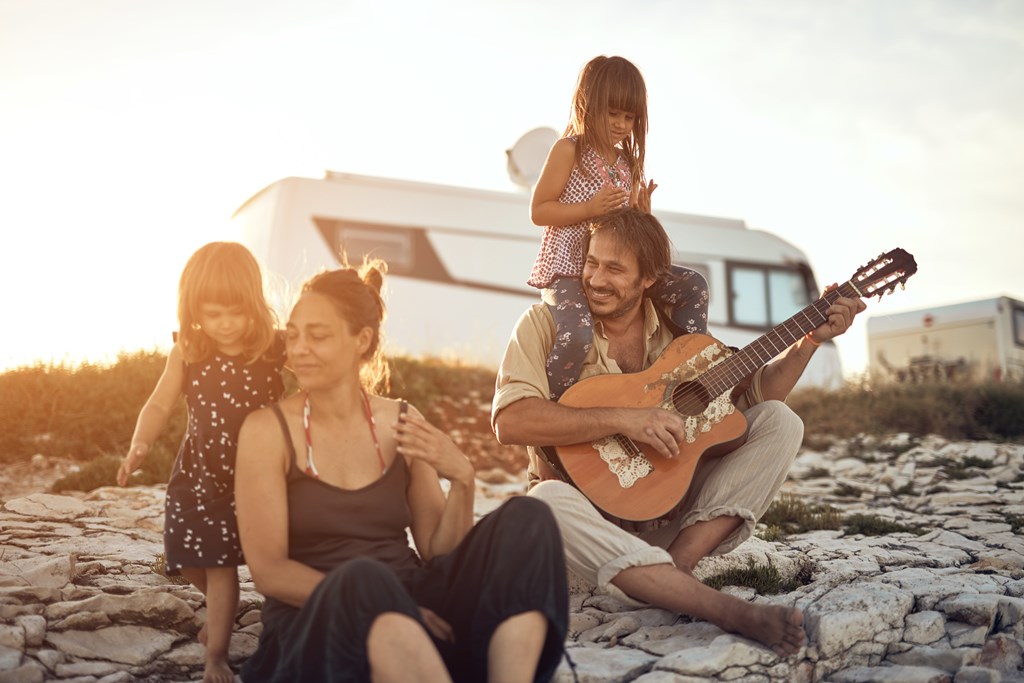
4. Slash debt
Many full-time RVers sell their “sticks and bricks home” and the bulk of their things and use those funds to pay off debt and fund the RV journey. That’s a typical first step in this lifestyle. The second step (and an important step to make it all work) is to maintain a simple lifestyle and keep expenses low.
Louis and Sandra Crespo, originally of Orlando, live debt-free in their RV with their two kids. “When we decided to sell almost everything we owned, buy an RV, and live in it full-time, it was because we didn’t know where we wanted to settle, and we were also on a mission to live debt free,” says Louis.
“We now RV to live debt-free. Living debt-free is right around the corner for our family,” Louis Crespo says. “For us, the money we are freeing up from paying off debt represents freedom of all the things we can do rather than the things we can’t. Slashing our debts to less than half of what we were paying has been life-changing.”
RV life comes with its own significant expenses as well, so it pays to research and budget for your rig, maintenance and repair costs (and future costs), as well as things like groceries, mobile phone and WiFi, insurance, site fees, food, and supplies. When living in an RV, many people find they’re no longer shopping for “fun” or “extra” tchotchkes as every square inch of space is precious and needs to be well thought out.
Jesse and Rachael Lyons, another full-time RV family, visited 23 states and 25 national parks while living in their RV full-time since 2018. The Lyons’ say the major expenses of full-time RV life are campsite fees, fuel, RV and vehicle payments, as well as travel activities. They add the costs of full-time RV living vary greatly depending on lifestyle, but RVers can quickly scale their budgets depending on the type of campgrounds they stay in and how often they travel to the next destination. Planning and sticking to a budget is essential.
As long as travel fees are kept in check, and RV purchase and maintenance costs are considered, Living “small” in an RV can be significantly cheaper than a monthly mortgage plus the cost of “keeping up with the Joneses” in 2,000 square feet.
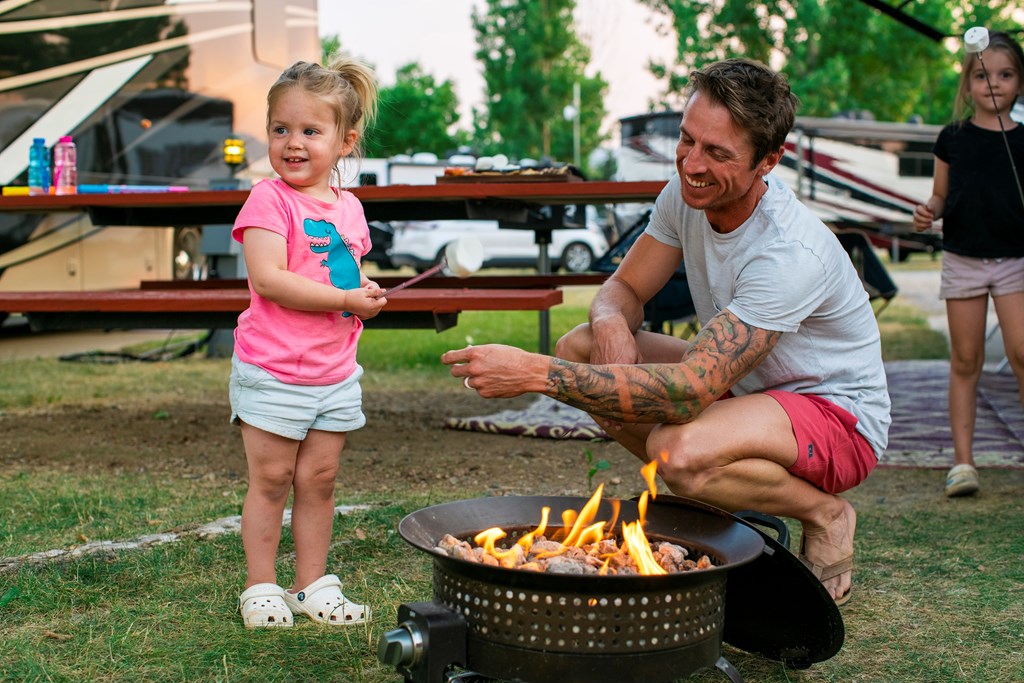
5. Focus on family
The daily reality of exploration and shared experiences, working together, and living in a space that requires intentional communication often brings families closer together.
This family of seven lived in an RV during the Coronavirus pandemic. With park pools and basketball courts shut down at the time, Matthew Wilson along with his parents, three siblings, and grandmother found joy and entertainment with family movie nights, picnics, and sharing stories and s’mores over an open flame. While this example may be a bit extreme, Wilson reported of the experience: “Sitting in a circle and sharing stories while eating s’mores with my family, I could almost forget there was anything wrong in the world.”
Families who take their kids on the road and homeschool (or “road school” as some RVers call it) tend to be very intentional with their lifestyle and learning. And no small matter in all of that learning is learning how to prioritize, relate with each other, and be a considerate family member.
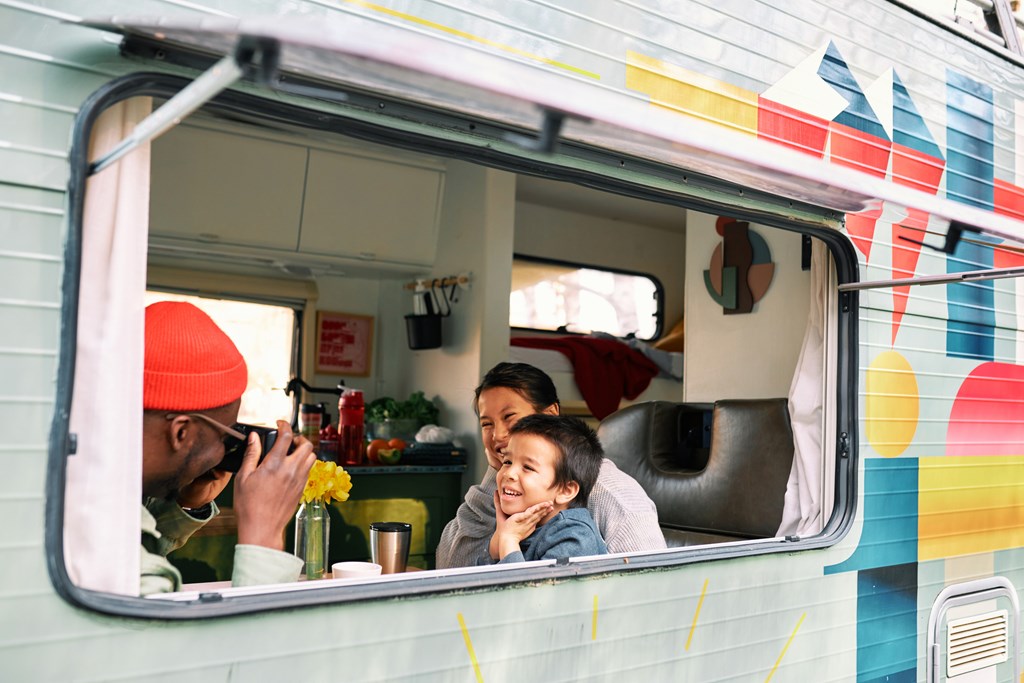
6. Explore new places, all the time
When you have a traditional house (with a foundation and everything), that street address is your home base. The house doesn’t move and the neighborhood is always the same. When you call an RV “home”, home is, well, wherever you happen to be. “Home” might be the Smoky Mountains in the fall and South Carolina in the winter.
Jessica Lawson lived and traveled with her husband in their 27-foot Winnebago for 1,353 days (that’s nearly four years). In that time, the two traversed the country, with leisurely stops in places like Oregon, Glacier National Park in Montana, Acadia National Park in Maine, the Florida Everglades, and Wyoming’s Yellowstone National Park.
Thinking back on this time in her life Lawson says, “The vast, beautiful country was our backyard.” She and her husband Brian experienced the highs and lows of RV life together. “The tough times were prickly, but [they were] often and almost immediately soothed by the next cool, interesting, and unexpected thing,” she says. “For better or worse, the RV forced us to live in the moment — a gratifying and humbling practice that stitched us closer.”
There are lots of reasons why many people (including retirees and young families) have decided to make their RV their permanent residence for a series of months or even years. Usually, the main driver of such a drastic lifestyle change is the desire to slow down and see the wonder and natural beauty around us. A pleasant side effect is often strengthening relationships and fattening wallets along the way. Not to mention more time spent doing what they love — whether that is traveling or hobbies like music, photography, or bird watching. Some families want their kids to collect more hands-on, lived experiences rather than sitting behind a school desk.
Sure, there are plenty of tradeoffs to living “small”. A few of the unique challenges inherent in full-time RV living are lack of privacy, doing weekly laundry at a laundry facility, unexpected maintenance costs, stress, and unpredictable weather.
If the open road calls to you for some long-term respite and adventure, look into it carefully. Living in an RV may sound romantic. It has its pros (as noted above), but as you might imagine it’s not always easy. Weigh the pros and cons carefully, and if it still seems like the right thing to do, why not go for it? After all, it’s not something you have to try for months or years at a time. A great journey can indeed begin with a single mile.

Leslie is a freelance travel and health/wellness writer who gets butterflies from telling stories and sharing information with readers across the globe. Her voice comes from a place filled with passion and dreams.
With over 10 years of experience in crafting words and years of embarking on travels that have taken this Montana girl to some incredible places, Leslie loves the adventures of both body and mind her writing takes her on.
To see what Leslie’s up to in the writing and design world, visit her website here.







